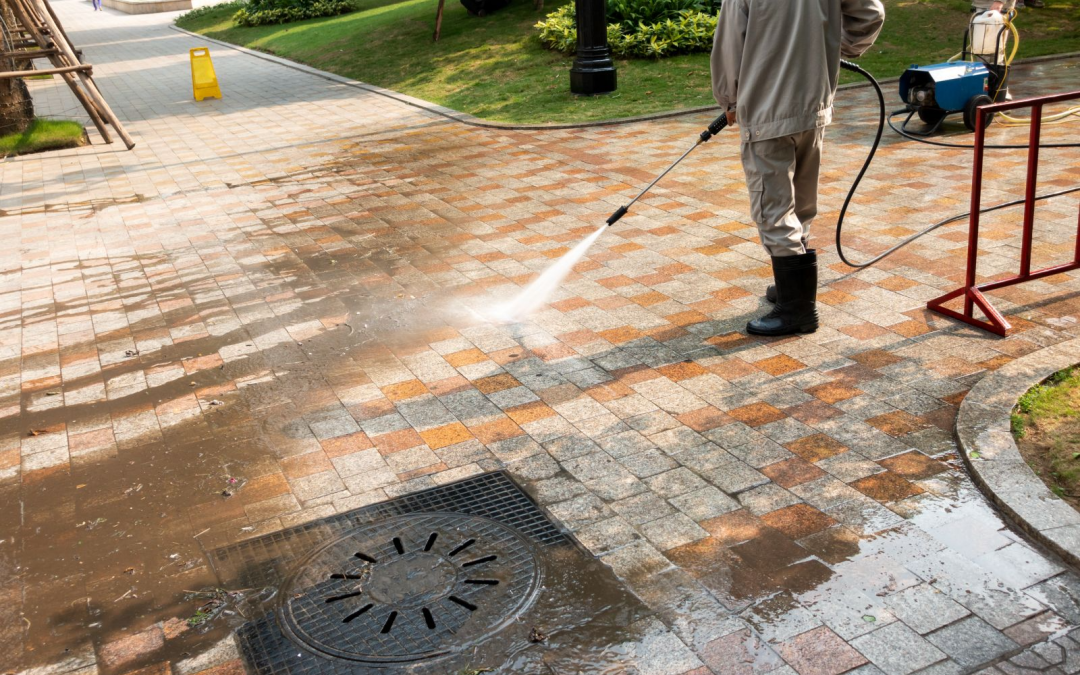Power Washing vs. Soft Washing: What’s the Real Difference?
If you’ve ever looked at the outside of your house and thought, “Wow, that could use a good cleaning,” you’re not alone. Over time, dirt, grime, mold, and mildew can make even the nicest home look a little worse for wear. But when it comes to cleaning, there’s often some confusion about whether power washing or soft washing is the way to go.
So, what’s the deal? Are they the same thing? Which one’s better for your home? Let’s break it all down and help you figure out which method is right for your property.
What’s Power Washing, Anyway?
Power washing is basically a supercharged cleaning method that uses high-pressure water to blast away dirt, mold, mildew, and stains. It’s like using a pressure washer, but with heated water for extra cleaning power. That heat can be a game-changer when you’re dealing with things like grease stains, gum, or stubborn dirt that’s been sitting there for years.
Power washing is ideal for tough surfaces that can handle the force, like concrete driveways, sidewalks, patios, and decks. It’s also great for removing stains from brick and stone. However, because it uses such high pressure, it’s not always the best option for more delicate surfaces, like siding or roofing.
Soft Washing—A Gentler Approach
Soft washing, on the other hand, is a gentler cleaning method that uses low-pressure water combined with specialized cleaning solutions to break down dirt, algae, mold, and mildew. Instead of relying on brute force, soft washing lets the cleaning agents do most of the work.
This makes it perfect for surfaces that might be damaged by high pressure, like vinyl siding, stucco, roofs, and painted wood. Soft washing is also a great choice for cleaning windows and outdoor furniture without the risk of damage. Plus, the cleaning solutions used in soft washing often have long-lasting effects, helping to keep mold and mildew from coming back anytime soon.
Key Differences Between Power Washing and Soft Washing
Pressure Levels
The most obvious difference is the pressure. Power washing uses high pressure—sometimes up to 3,000 PSI (pounds per square inch)—while soft washing uses less than 1,000 PSI.
Cleaning Methods
Power washing relies on pressure and heat to clean surfaces, making it ideal for tough stains and heavy buildup. Soft washing, however, uses biodegradable cleaning solutions to break down grime and relies on water to rinse it all away.
Surfaces They’re Best For
- Power Washing: Concrete, stone, brick, and hard outdoor surfaces.
- Soft Washing: Siding, roofs, decks, fences, and more delicate materials.
Long-Term Effects
Soft washing often provides longer-lasting results because it eliminates mold, algae, and bacteria at their source. Power washing removes surface dirt and stains but doesn’t always address the root causes of grime.
Which Method Should You Choose?
When to Use Power Washing
Power washing is your best bet for cleaning tough, durable surfaces. Think driveways covered in oil stains, sidewalks with years of dirt buildup, or concrete patios that need a refresh. It’s also great for prepping surfaces before painting or sealing, as it strips away old paint and grime.
When to Use Soft Washing
Soft washing is ideal when you’re dealing with more delicate surfaces or organic growth like mold and algae. If you’re cleaning siding, roofs, fences, or outdoor furniture, soft washing will get the job done without causing damage. It’s also the preferred method for homes with painted surfaces or older materials that might not stand up to high pressure.
Pros and Cons of Both Methods
Power Washing Pros
- Great for heavy-duty cleaning
- Removes stubborn stains and grime quickly
- Perfect for prepping surfaces for sealing or painting
Power Washing Cons
- High pressure can damage delicate surfaces
- Doesn’t prevent mold and mildew from coming back
- Requires careful handling to avoid injury or property damage
Soft Washing Pros
- Safe for fragile surfaces like roofs and siding
- Kills mold, mildew, and algae at the source
- Provides longer-lasting results
Soft Washing Cons
- Not as effective on tough stains or grease
- Takes longer due to the use of cleaning agents
- May require re-treatment for deeply embedded dirt
Why Professional Help Makes a Difference
While both methods can be DIY-friendly, hiring professionals can save you time and effort—and help you avoid costly mistakes. For instance, using too much pressure on siding can lead to cracks and water damage, while failing to rinse soft wash chemicals properly can leave residue behind.
Professional cleaning services come with the right equipment, cleaning solutions, and expertise to get the job done safely and effectively. Plus, they know exactly which method to use for each surface, so you won’t have to second-guess yourself.
Final Thoughts
So, which is better—power washing or soft washing? The truth is, it depends on what you’re cleaning. Power washing is great for hard surfaces like driveways and patios, while soft washing is the safer choice for siding, roofs, and delicate materials.
If you’re ready to refresh your home’s exterior but aren’t sure which method to choose,Dri-Mastershas got you covered. From expertpower washingto gentlesoft washing for siding and roofs, their team offers top-notch services to keep your property looking its best. Check out theirexterior cleaning optionsorschedule an appointment today

